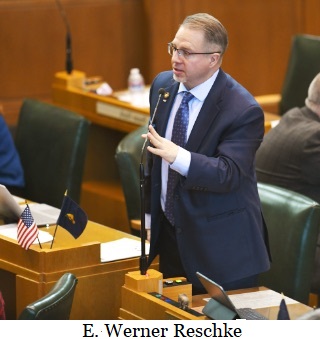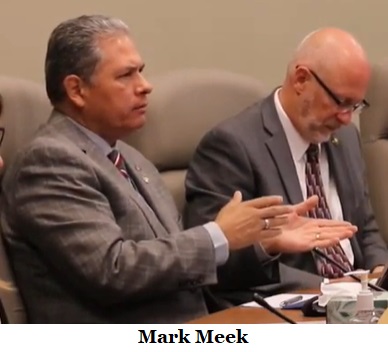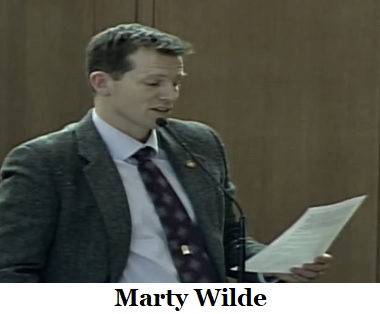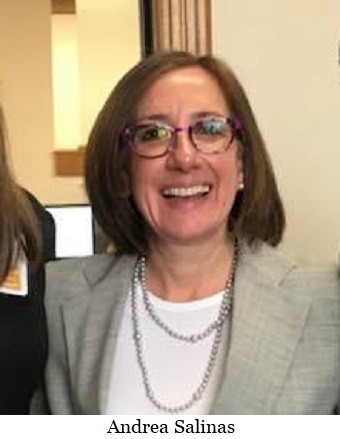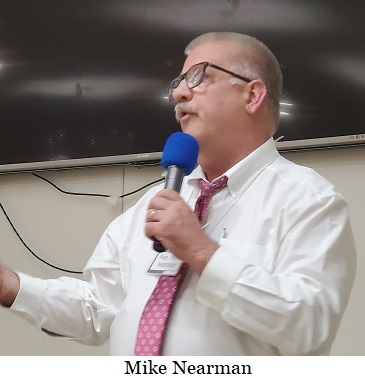 Post an Event
Post an Event
| Benton County Republicans’ Private Fundraising Event, “Bent-on Boots and Bling” with Trey Taylor |
| Friday, September 5, 2025 at 5:00 pm |
| Featuring Trey Taylor
Music Private Event
Friday, September 5, 2025 5:00-5:30 pm VIP Reception
5:30-8:00 pm Heavy Appetizers,
Auction, Concert
Red: $750 VIP Reception
Front Row Table Sponsor
White: $500 Table Sponsor
Blue: $50 per person
Limited Seating. Get Yours Now!!!
Support Local
Dress up: Bling, Cowboy, Patriotic Benton County Republican
FUNDRAISER
www.BentonGOP.org
Get your tickets today at:
https://www.bentongop.org/event-details/benton-county-republicans-fundraiser/form
About Trey:
Trey is the youngest African American Man in Country Music History. The Denver Post wrote
"It's impossible to miss his enthusiasm. With a fondness for cowboy boots, gaudy colors and dazzling jewelry, Trey Taylor could stand toe to toe with any of the Pop, Country or even Rap
contemporaries of his generation.“ |
| Trysting Tree Golf Club, 34028 NE Electric Rd., Corvallis |
Those camping along Emerson Avenue need to vacate by June 23
The Bend City Council recently approved an administrative policy that sets out steps and procedures the City will use to determine when to remove or manage established campsites on City rights-of-way. The policy is intended to be used to remove those established campsites on City rights-of-way that are having the greatest impact on public health and safety -- including the safety of those individuals residing or camping at a location.
According to the new Management and Removal of Established Campsites in City Rights-of-way policy, when a segment or portion of a City right-of-way is being used as an established campsite and poses a threat to public safety and use of the right-of-way, the City can deem it an “unsafe campsite.†An impact analysis identified the unsafe campsite using evaluation criteria such as the number of Police Department calls for service, violations of laws or codes, and encroachment on travel lanes.
“Providing for the safety of our unhoused community members and the traveling public is the City’s top priority in addressing what’s happening at Emerson Avenue,†said City Manager Eric King. Along with approval of the policy, Councilors requested that staff provide two weeks’ notice to service providers before removing established, unsafe campsites.
This morning, the City provided official notice to those camping along Emerson Avenue of the need to vacate by June 23. On the morning of June 23, City crews and contractors will close portions of Second Street and Emerson Avenue and begin cleaning the area and restoring the right-of-way. Access to the area will be limited to service providers, City officials and contractors.
During camp clean-up and restoration, a safe observation area will be provided at the eastern end of the Second Street and Emerson Avenue intersection for First Amendment expressions and media.
Personal property remaining in the right-of-way after people relocate from the closed area will be stored near City Hall and available for pick-up by contacting City administration at City Hall, according to City administrative policy and in compliance with State law. People who leave the rights-of-way may choose to relocate temporarily to the low-barrier shelter located at 275 NE Second Street.
Once the unsafe campsite has been cleaned and restored, sections of Emerson Avenue will be posted as a no parking area to provide for safe access to the right-of-way and businesses.
 --Staff Reports
--Staff Reports| Post Date: 2021-06-22 16:48:32 | |
Republican bill would return $300 M that Oregon owes taxpayers
House Republicans have introduced a bill by Representative E. Werner Reschke (R-Klamath Falls) to return $300 million to Oregonians they are owed by the state.
When the federal government issued stimulus checks it was promised that people would not owe any additional taxes for them. However, a quirk in Oregon tax code resulted in many people paying more in taxes if they received these relief checks. At a time when many people and businesses are recovering from the economic chaos of COVID-19 -- while the state is awash in revenue -- many people think that this is not the time for the state to be extracting more money from citizens.
HB 3411 will make it easy for the Oregon Department of Revenue to set up a process to return this money to people when they file for taxes next year.
“This money doesn’t belong to the state, it’s as simple as that,†said House Republican Leader Christine Drazan (R-Canby). “We’re sitting on $300 million that belongs to the people of Oregon. This fix will give it back to them.â€
“We have no excuse,†added Representative E. Werner Reschke (R-Klamath Falls). “If returning money that belongs to Oregonians is a priority for the majority party, then we can make it happen. If it’s not a priority, then people should know that.â€
--Staff Reports| Post Date: 2021-06-22 16:34:43 | |
New proposal could hike electric bills and risk rolling blackouts
As the state of Oregon is looking at upcoming days with temperatures exceeding 100 degrees and the concurrent stress it will place on the energy grid, Legislators are considering legislation that may force Oregon into California-style blackouts.
HB 2021, introduced by Representative Pam Marsh (D-Ashland) and Khanh Pham (D-Portland), has moved through committees on party lines and will soon be considered on the House floor. The bill raises electricity costs for Oregonians and will likely make the state’s energy grid unreliable.
This session House Republicans have pushed for only focusing on bills that address immediate concerns related to the pandemic, natural disasters, education and restoring jobs. Raising the cost of living for people still struggling to recover is the wrong direction.
“We should not be raising electricity costs for Oregonians while making our energy grid less reliable,†said House Republican Leader Christine Drazan (R-Canby). “
HB 2021 will hike electricity costs and expose Oregon families and businesses to rolling blackouts like we see in California. We shouldn’t be pushing this through a closed-door legislative session and ignore serious concerns from the public and key stakeholders. Oregonians cannot afford to pay more for less reliable electricity.â€
--Staff Reports| Post Date: 2021-06-22 16:23:19 | Last Update: 2021-06-22 16:48:32 |
Government policy has to get away from segregating neighborhoods
The term "ghetto" originated from the name of the Jewish quarter in Venice, Italy. Venetian authorities compelled the city's Jews to live in the quarter, which was established in 1516. The African-American ghetto is a creation of the twentieth century. Fifty years after the repeal of Jim Crow, many African-Americans still live in segregated ghettos in the country's metropolitan areas.
Richard Rothstein, a research associate at the Economic Policy Institute, has spent years studying the history of residential segregation in America. His assertion is that the government created the modern ghetto. “A ghetto is, as I define it, a neighborhood which is homogeneous and from which there are serious barriers to exit. That’s the technical definition of a ghetto.†He goes on to say that government policy has taken integrated neighborhoods and made them segregated.
Where public housing or subsidized housing is meant to provide affordable housing to a diversified class of citizens, it runs the risk of creating segregated communities that overflows into more segregated schools, higher unemployment, higher use of public health care, and more transportation needs. Under FDR the left started taking integrated neighborhoods and converting them into segregated neighborhoods under federal government policies of the New Deal. Are they again using diversity and equity to segregate for the purpose of providing benefits or is it for control?
Representative Mark Meek (D-Clackamas) wants $1 million to expand the accessory dwelling unit community pilot program for low-income rental homes.
HB 3335 allocates funds to the Hacienda Community Development Corporation to assess suitable property for siting and construction of an Accessory Dwelling Unit in an area outside of Portland. For a homeowner to be eligible for an ADU construction, their income must be at or below the area median income. If a nonprofit organization owns a home, it must be rented to a household with an income at or below the area median income.
HB 3335 requires the Hacienda Community Development Corporation provide professional property management services for the eligible homeowners receiving grants. If a homeowner submits to the project, they are micromanaged for upkeep and compliance for 10 years, or under penalty to repay grant monies.
A D V E R T I S E M E N T

A D V E R T I S E M E N T
HB 3335 passed out of the Full Ways and Means Committee headed to the House floor for a vote. Two other bills that have made it through the process:
- SB8 Requires local governments to allow development of certain affordable housing on lands not zoned for residential uses. (Passed awaiting Governor’s signature)
- HB 2160 adds Pendleton to the Land Conservation and Development Commission pilot program to develop sites for affordable housing in urban growth boundary expansion areas.
HB 2708 allows the Department of Land Conservation and Development to approve local governments' plans for urban growth boundary expansion areas if 30 percent is used for affordable housing for no less than 50 years. It died in committee.
How does a state provide affordable housing without creating class-based or segregated communities that turn into ghettos? Some bills
offer grants to organizations providing assistance to find housing, including low-income, mentally disabled, and minorities. And, many bills that allowed tax credits for construction of affordable housing that would have integrated them throughout the community were turned down.
In order to get away from segregation, government policy has to get away from taking integrated neighborhoods and segregating them through policy.
--Donna Bleiler| Post Date: 2021-06-21 08:36:37 | Last Update: 2021-06-21 15:37:51 |
One would presume that such a bill has support in the House.
In a move clearly directed against former State Representative Mike Nearman, a bill has been introduced in the Oregon House to prohibit a person who has been expelled from the legislature to be appointed back to their seat. Representative Nearman was expelled from the Legislature last week. He has submitted a form indicating his
willingness to serve if appointed.
HB 3413, introduced by State Representative Marty Wilde (D-Eugene) creates the prohibition. One would presume that such a bill has support in the House. It's less clear in the Senate.
This bill is just one more in a series of election reform bills designed to thwart Republican political activity. Earlier this session,
SB 865 was proposed by Senators Lynn Findley (R-Vale), Bill Hansell (R-Athena) and Rob Wagner (D-Lake Oswego) to prohibit a person from simultaneously serving as holder of state office and as officer of state central committee of political party. Currently, Senator Dallas Heard (R-Roseburg) is the Chair of the Oregon Republican Party and Senator Dennis Linthicum (R-Klamath Falls) is the Treasurer.
The Convention of Precinct Committeepersons to select nominees for Nearman's seat in House District 23 is set for Friday. Some of Nearman's supporters have pointed out that his expulsion was anti-democratic, where 59 persons who do not live in House District 23 have denied representation for the nearly 60,000 voters who do live in his district.
HB 3413 is scheduled be first read on the floor of the House today.
--Staff Reports| Post Date: 2021-06-21 08:34:58 | |
Nearly 50 years after the conflict ended
SB 319 dedicates a portion of State Capitol State Park to a
Vietnam War memorial to be funded and constructed on the corner of Cottage and State Streets by a nonprofit corporation. Some think that it's about time, nearly 50 years after the conflict ended and when many who fought are no longer with us.
Vietnam was a different kind of war. Though it was fought for the undeniably noble cause of stopping the spread of Communism in Southeast Asia, the left so demonized the war that the hatred and discrimination that was directed at those who risked and even gave their lives during the war has resulted in the shameful, decades-long delay of the memorialization of these brave soldiers.
Nancy Menagh, the National President of the Gold Star Wives of America, left these thoughts with the House Committee on Rules, as they considered this bill.
When my late husband, Captain Philip Menagh, USMC, returned from Vietnam, he faced much derision and disrespect. Even when
we were stationed at Camp Pendleton in the 1970’s, I felt the animosity when we would go into town -- with the tell-tale buzz cut, it
was easy for anyone to spot a Marine.
My husband was killed on active duty in 1984, so he will not see this monument. But it will mean the world to me and to our children
to see this monument come to fruition.
For some, the monument needs to memorialize not only the brave soldiers who fought to keep Southeast Asia free from Communist tyranny, but, to remember the victims of that conflict who were the Vietnamese people -- called the "boat people" in their day -- who fled the country in great numbers for the decades following the war.
The bill will likely pass on the floor of the House this week and be presented to Governor Brown for her signature.
 --Mike Nearman
--Mike Nearman| Post Date: 2021-06-20 17:02:23 | Last Update: 2021-07-06 19:54:21 |
Stan Pulliam has been making waves
Stan Pulliam was born and raised in the Sandy area and is now governing as Mayor, one of the fastest growing cities in Oregon. The Mayor made national news when he urged small businesses to open up for indoor service against Governor Brown’s risk-based rating counties on coronavirus safety measures. He stated, “a county’s smaller towns should not be held to the same standards as their urban counterparts.â€
Mayor Stan, as he is called, says, â€I have had enough. My breaking point has been reached and that’s why I am exploring a gubernatorial run to bring real change and leadership to Oregon government. I’m the Mayor of Sandy—one of the fastest growing cities in Oregon. We do things differently here than what goes on in the Governor’s Mansion. We’ve found ways to get things done that help our working families without destroying our small businesses and watching our communities fall apart. As a non-partisan executive, I have experience overseeing law enforcement, infrastructure, tourism, and more. I’m ready to take this experience to the state level. But running for governor needs a commitment not just from me, but from you.â€
Mayor Stan is on a statewide tour speaking with other mayors on unifying Oregon, combined with a statewide listening tour to form his gubernatorial campaign and get that commitment. He is outspoken in opposition to Governor Brown’s crippling regulations and thinks his pro-growth policies will resonate with Oregonians as a means to recover from the pandemic.
Mayor Stan says, “I am a pro-life, pro-gun, fiscal conservative Republican with a record of implementing real results for working families. I’m exploring a run for governor because I don’t want to give up on Oregon. I believe our best days are yet to come.â€
--Donna Bleiler| Post Date: 2021-06-20 15:13:55 | Last Update: 2021-06-18 15:17:09 |
Why do colleges have to be told to make school convenient?
If you've ever wondered if there was some vast conspiracy among institutions of higher education to suck students in, jump them though senseless hoops, all the while bleeding them of cash that they procure through mountains of debt (debt that will be tough to pay back if they pick a Mickey Mouse course of study or don't finish), you may be onto something.
Higher Education may be -- like much of government -- slow and clunky, but at the end of the day, they should have the student's best interests at heart. The long run objective should be to work hard to help all students achieve life-fulfilling learning. Higher Ed is about knowledge and the last thing Universities should have on their mind is money, especially tuition money, which is hard to come by for many students.
SB 233 might make you go back to being a conspiracy theorist. This bill requires schools to have a common system of course numbers and easy transfer policies for commonly transferred lower-division courses. Calculus is calculus, no matter where you take it. And after all, why wouldn't colleges want to support students on a path to success, at the very least by numbering courses and accepting transfer credits? Apparently, they need to be told by the Legislature.
Emily Wanous, the Legislative Director for the Oregon Student's Association provided this testimony, during the committee hearing on
SB 233:
According to the HECC report, approximately half of state public university students in Oregon have transferred from an Oregon community college each year. This work is urgent and necessary considering the number of students going through the transfer process every year who experience the myriad of issues when it comes to transferring their credits from one institution to another. Far too often, students are faced with the reality of retaking and repaying for courses they have already completed purely due to the lack of continuity between institutions. Transferring is often looked at on the campus level, which does little to increase the cohesion we need across institutions.
We recognize transfer has and continues to be an issue for many of our students. This bill would make the transfer work more intentional and guided for statewide success. A common course numbering system will not solve all issues in transfer, but it is a great step in making Oregon’s transfer system more efficient and most importantly: easier on students.
For Wanous, it's a shame that this issue (which is as old as some of the ivy-covered buildings at these institutions) is not resolved, and it's a shame that the Oregon Legislature has to tell them what to do, for some over a century after their founding.
A D V E R T I S E M E N T

A D V E R T I S E M E N T
The Legislature has had to take a similar tack with requiring colleges to let the students know the cost of a class
before the student enrolls. In previous sessions, the legislature has had to prop up a program for modular, online, low-cost textbooks -- something that some think the colleges should have done long ago.
State legislators on Thursday also passed
HB 2919 which will require the higher education institutions to clearly display the costs of course materials, such as textbooks, at the time students are registering for classes.
The House will most likely vote on the floor on
SB 233 this week.
--Mike Nearman| Post Date: 2021-06-19 16:38:34 | Last Update: 2021-07-06 19:27:32 |
Virtual access isn’t cutting it
The end of the 2021 Legislative Session is a week away, and everything is in fast pace. The public has been locked out of the capitol for hearings, and technical issues have prevented many from testifying. But it goes deeper, procedures are set to determine the outcome halfway through the process. Bills that have a financial impact are sent to the
Joint Committee on Ways and Means directly from the originating committee.
Before we go further, the process is for a bill to work through both Houses refining the policy issues, but there doesn’t seem to be any history of how a bill needing financial appropriations is allowed to interrupt that process. It has been done this way for the past 15 years -- as far back as OLIS records go.
There is bi-partisan questioning of this process. Senator Chris Gorsek (D-Troutdale) and Senator Bill Hansell (R-Athena) were both concerned with the process and Gorsek stated “it’s unfortunately how these things are structured because subcommittees aren’t setup to deal with policy.†Hansell agreed and questioned having big package bills rushed through by the subcommittee and not given “due process†venting for policy.
When the originating committee completes its review on a bill that has a financial impact, they pass it out to the Joint Committee on Ways and Means. There they are farmed out to subcommittees for a work session to chew over amendments for funding requests. This is done in a vacuum as if there were unlimited funds. The bill has not been fully vented by both houses, so in essence, their vote is based on their own agenda and moral views on what the bill does. The bill is then returned to the full Ways and Means committee, which takes the recommendation of the subcommittee and drills through our money like there is no tomorrow.
The Full Joint Committee on Ways and Means is simply a test of whether the bill will pass on the floor. There is no real discussion in work sessions. All the work is done behind closed doors balancing budget items within the statutory limits based on what the committee leaders want to see funded. That’s the only way that Ways and Means can possible get votes on 44 bills in 2-3 hours on the agenda this week. Included on the list are five full agency budgets. These bills are only heard in Ways and Means Subcommittees.
The
Oregon State Legislature website says, “A bill may be introduced in either the Senate or the House with the exception of revenue bills which must originate in the House.†Still, three of the agency budget bills on the agenda were introduced and assigned by the President of the Senate.
What this process does, by going through Ways and Means before it goes to the second House, is it makes the second House simply a formality without meaning. By the time it reaches the second House everything is settled.
The process doesn’t just short cut the process, but it denies half of our representation. It also denies us the public hearing opportunity to be heard when it counts, prior to decisions made. Quite often a bill is heard in the first house before many are aware of its existence, and now the hearing in the second house has been rendered meaningless.
When one party controls both Houses and the Administration, it doesn’t leave any room for opposition.
--Donna Bleiler| Post Date: 2021-06-19 15:55:01 | Last Update: 2021-06-19 16:08:46 |
The OHA lacks a cohesive strategic plan
The Oregon Legislative Assembly established the Housing for Mental Health Fund in 2015 when it dedicated $20 million in lottery bonds and housed the fund in the Oregon Housing and Community Services (OHCS). These funds were to provide financial assistance for the development, acquisition, renovation or improvement of affordable housing for Oregonians who have mental illnesses or addiction disorders.
In 2017,
HB 3063 brings the Oregon Health Authority (OHA) in as collaborator on how to distribute the funds by convening an advisory group to make recommendations for the Housing for Mental Health Fun.
Fast forward to this session, Representative Andrea Salinas, (D-Lake Oswego) introduced
HB 2316 transferring responsibility for administering the Housing for Mental Health Fund from HCSD to OHA and changes the name to the Behavioral Health Housing Incentive Fund. The directives stay the same carrying out provisions of ORS 458.385, so perhaps the name change is to appear more like a health issue rather than a housing issue, or maybe it’s an indication of more changes to the use of the funds.
What is puzzling about this bill is that when searching Oregon.gov, the Housing for Mental Health Fund isn’t found, except for this bill. OHCS lacks any reference to mental health housing needs. However, the bill may be codifying what is in practice since OHA, Behavioral Health Services, Affordable Housing unit provides an affordable housing inventory listing. But there is still no mention of the Housing for Mental Health Fund. It does beg the question as to how $20 million lottery funds were spent, and spent equitably when the fund can’t be searched.
Along with this bill, there are 172 bills introduced this legislative session aimed at adding more responsibility to the Oregon Health Authority, with little accountability. OHA Director, Pat Allen, has stood by Governor Brown’s decisions and supporting her “powers of persuasion†issuing Guidelines as though they were laws. Whatever the Governor wants proof for, he makes sure the numbers are there. Is there some kind of payback reflected in building an OHA empire?
A D V E R T I S E M E N T

A D V E R T I S E M E N T
Many of the 172 are studies aimed at the probability of new programs, some are collaboration with other agencies, some expand existing programs or give new direction, but sixteen are clearly new programs to the agency and two transfer the administration of a program from another agency to OHA.
- HB 2041 – requested by the Governor - transfers duties, functions and powers related to COFA Premium Assistance Program and health insurance exchange from Department of Consumer and Business Services to OHA.
- HB 2316 transfer responsibility for administering the Housing for Mental Health Fund from HCSD to OHA
The Secretary of State’s audited Oregon’s Mental Health in 2020 indicating the statues do not fully support mental health service delivery. Oregon lacks a vision for behavioral health, OHA lacks a cohesive strategic plan with high turnover in staff affecting delivery of care, and accountability needs improving. This is the department we entrust care of our most vulnerable.
--Donna Bleiler| Post Date: 2021-06-18 22:42:04 | Last Update: 2021-06-18 22:46:49 |
Property owners may have a chance to recover lost revenue
The Oregon House has passed
SB 278 to extend eviction protections for tenants who applied for renters assistance. Added to the bill is an amendment negotiated by House Republicans that will allow property owners to seek the full amount of rent deferred by the COVID-19 emergency.
This part of the amendment reads:
The Housing and Community Services Department shall make distributions to adjust the compensation under section 2 (1), chapter 3, Oregon Laws 2020 (third special session), for landlords whose applications were approved before the effective date of this 2021 Act without
requiring that the landlord submit an additional application.
A previous bill,
HB 4401, required property owners to forgive 20 percent of rent when the state reopens. Now they will be able to get the full amount of rent lost in order to repay mortgage loans, cover deferred maintenance or necessary repairs, and pay for property taxes. The Oregon Legislature passed
$150 million in compensation for housing providers, but that was not enough to cover the losses.
“It’s important that we help Oregonians recover, and that includes property owners who kept people housed during the pandemic,†said House Republican Leader Christine Drazan (R-Canby). “We have to make a promise that Oregon will continue to be a state with sensible housing policies that allow property owners to collect rent in order operate. We can’t afford an exodus of landlords which will exacerbate the housing crisis.â€
Photo by Zachary Keimig on Unsplash
--Staff Reports| Post Date: 2021-06-18 07:08:11 | Last Update: 2021-06-17 16:14:37 |
“Several people from my district have reached out to meâ€
State Representative Mike Nearman has ended speculation about whether he will try to regain his old office and has filed a form indicating his willingness to serve, if appointed. The Oregon Republican Party will host a House District 23 Nominating Convention on Friday, June 25, when -- according to Oregon law -- the Precinct Committeepersons from House District 23 will nominate between 3 and 5 persons to present to the county commissioners. The district includes parts of four counties: Polk, Yamhill, Marion and Benton.
Nearman was
expelled from the Oregon House of Representatives on June 10 of this year by a vote of 59-1. He was first elected to the seat in 2014.
"Several people from my district have reached out to me and urged me to run," said Nearman. "I think many of them are upset that their choice for State Representative was removed by 59 people who don't live in the district." Nearman teased the idea on the Lars Larson show on June 11 and
speculation has been rampant as to whether or not he was serious.
All of the votes, both from the Precinct Committeepersons and the County Commissioners are weighted so that they reflect the number of persons represented.
--Staff Reports| Post Date: 2021-06-17 16:14:37 | Last Update: 2021-06-17 18:29:29 |
Read More Articles








